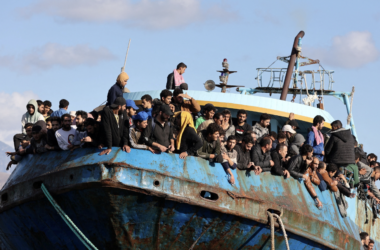European leaders met in Paris to explore a NATO alternative—minus the U.S. and certain EU members like Hungary and Slovakia, sidelining those seen as unreliable in crises. Turkey, a NATO member, was also left out.
Dubbed a “crisis response unit,” this initiative appears more symbolic than practical. Even discussions on deploying troops to Ukraine failed to unify the group, underscoring its dependence on U.S. backing—support that Trump has outright rejected.
French President Emmanuel Macron, spearheading the talks, argued that Europe shouldn’t let the U.S. and Russia dictate Ukraine’s fate without its input. While that stance may hold merit, the overall effort to form a separate security alliance seems detached from reality.
UK Prime Minister Keir Starmer, for instance, insists Britain could send troops to Ukraine, despite its military being stretched thin. Meanwhile, Brussels think tank expert Luuk van Middelaar noted that in any crisis, exclusive “inner circles” emerge—but this Parisian group may find itself more of an “outer circle” than a decisive force.




